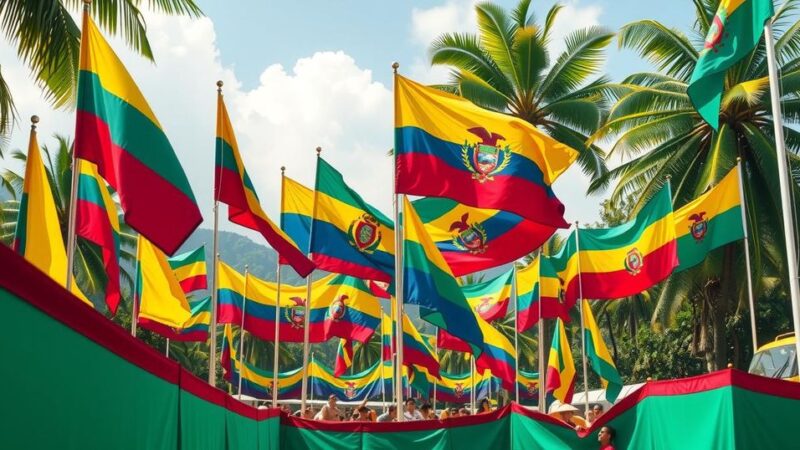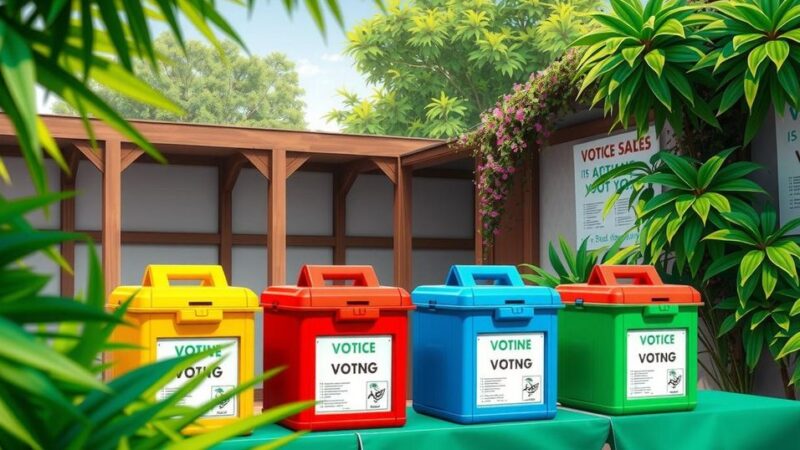Ghana marked its 68th Independence Day on March 6, 2025, with subdued celebrations to address economic challenges. Budget cuts saved over 95% of costs associated with traditional festivities, leading to a focus on modest observance throughout the country. The theme “Reflect, Review, Reset” calls for national introspection and a renewed commitment to development. While some commend Ghana’s political stability, others highlight ongoing economic struggles compared to peer nations, emphasizing the need for a collective effort toward improvement and national pride.
On March 6, 1957, Ghana achieved political independence from British colonial rule. This historic occasion is traditionally celebrated with vibrant ceremonies and events nationwide, recognized as a statutory public holiday. However, this year marked a significant departure from tradition, as celebrations were conducted on a more subdued scale to address the country’s current economic challenges.
The annual parade at Independence Square, usually featuring schoolchildren and dignitaries, was significantly reduced, resulting in a budgetary saving of nearly 95%, estimated at about 20 million cedis. Moreover, the customary festivities and economic activities in Osu that typically flourish during this time were noticeably absent. Regional and district celebrations also maintained a modest demeanor, focusing on limited parades rather than large gatherings.
March, recognized as “Ghana Month,” is dedicated to promoting national pride and unity, beautifully branding Ghana as the “Black Star of Africa.” This year, the theme for the 2025 Independence Day celebration, “Reflect, Review, Reset” (3Rs), encourages a thorough appraisal of Ghana’s past 68 years, addressing challenges and setting a renewed national agenda.
Critically assessing Ghana’s progress since independence, various opinions emerge regarding national performance. Some argue that Ghana has performed relatively well in maintaining a stable political environment, particularly since the Fourth Republic’s inception in 1992, marked by 32 years of peace and security despite recent socio-political unrest.
Conversely, others believe Ghana has lagged behind comparative nations such as Singapore, Malaysia, and Thailand, especially in economic development. Questions arise regarding local prices, such as a bar of chocolate costing more in Ghana than in Europe, despite local cocoa production, highlighting systemic economic inefficiencies.
After 68 years of independence, Ghana still grapples with setbacks in industrialization and an economic structure heavily influenced by colonial legacies, often seeking assistance from the International Monetary Fund. Nevertheless, amid these challenges, the nation has experienced achievements worth celebrating, including social cohesion.
Tourism in Ghana has flourished, positioning the country as an attractive destination with over one million tourists. The National Democratic Congress (NDC) calls for a refreshed commitment to the slogan “Building the Ghana we want,” emphasizing the importance of introspection and proactive efforts in reshaping Ghana’s future.
It is essential to foster a mindset among citizens that resonates with the ideals expressed in the National Anthem and National Pledge. Thus, there remains significant cause for Ghanaians to celebrate their identity and pursue a vision for a promising future together.
In summary, Ghana’s 68th Independence Day serves as both a celebration and an opportunity for reflection. As the nation confronts economic and developmental challenges, this year’s modest observance emphasizes introspection and unity. Moving forward, Ghanaians are encouraged to rebuild and strive for a promising future, nurtured by a shared commitment to national pride and progress. Celebrating achievements while acknowledging shortcomings will pave the way for sustainable growth and development.
Original Source: www.ghanaweb.com






